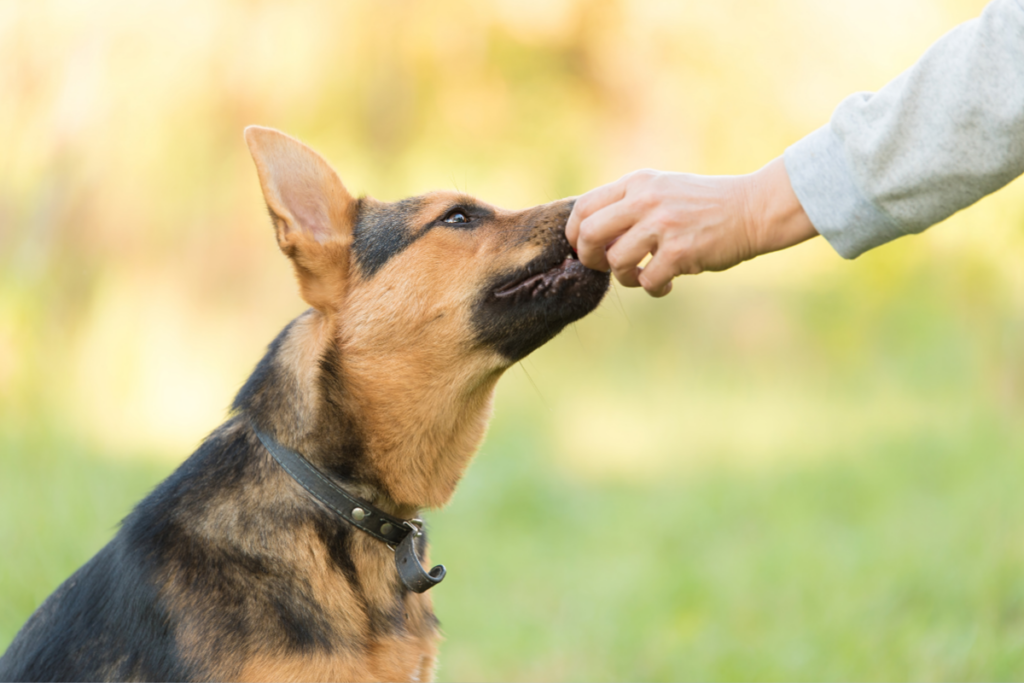One of summer’s sweetest surprises is popping a ripe, juicy blackberry into your mouth. Not only do they taste great, but blackberries also offer us a wide range of health-supporting vitamins and antioxidants. The good news is that blackberries are also yummy treats for our dogs to eat and can convey some of the same health benefits.
There are a few cautions to keep in mind when offering your pup a blackberry, however, so be sure to give them in small amounts as an occasional treat to supplement their well-balanced diet.
Table of contents:
Benefits of blackberries
Blackberries are low sugar fruits that are packed with a number of essential vitamins and nutrients. These ingredients can promote good health, but remember that blackberries cannot be a complete source of vitamins and minerals for your dog as they cannot eat enough berries to impact their diet.
Blackberries contain vitamin A, which is important to support the immune system and to keep eyes and skin healthy; vitamin B to boost energy, brain function, and give a healthy skin and coat; vitamin C, which supports the immune system and helps healing while strengthening muscles and bones; vitamin E, an antioxidant that adds to healthy skin and muscles while promoting healthy immune and circulatory systems, and vitamin K, which aids in blood clotting to help with healing.
They are also rich in anthocyanins, which are antioxidants that give blackberries and other fruits their dark color. Anthocyanins protect cells from damage and work to lower blood pressure, reduce the risk of heart disease, promote good brain health, and slow cancer growth.
Blackberries also have Omega-3 fatty acids. These reduce inflammation, support brain development, promote heart and kidney health, and help give your best friend a shiny, healthy coat.
Blackberries are high in fiber, which helps with proper digestion and prevents constipation.
How to feed your dog blackberries
Your pup can eat fresh or frozen blackberries. There are no poisonous look-alikes for wild blackberries, but be sure you can identify them on the plant to prevent your dog from having a berry that could harm them. Check that packages of frozen berries only contain fruit and are not loaded with extra sugar or xylitol.
Dogs can eat a small amount of whole or chopped blackberries; they can be mashed and added to food or used to stuff a Kong; freezing a small amount of smashed blackberries in an ice tray would make a tasty treat for a hot day.
A few cautions
While blackberries are a low sugar fruit, they do contain trace amounts of naturally occurring xylitol. Xylitol is a natural sugar alcohol that offers a lot of benefits to humans as it adds sweetness but does not have the caloric or tooth decaying properties of other sugars.
Unfortunately, even small amounts of xylitol are very dangerous for dogs. Eating a small amount of xylitol can lead to low blood sugar (hypoglycemia) with symptoms such as vomiting, weakness, lack of coordination, or seizures. Larger amounts of xylitol can lead to liver failure, seizures, coma, or even death.
The tiny amount of xylitol found in a blackberry does not pose a danger to your dog. However, it is important to limit their intake to just a few berries a day in order to prevent any harm from occurring.
Because blackberries are a high fiber fruit, they can cause bloating, gas, and abdominal discomfort for your pet. Introduce blackberries a few at a time, and keep an eye on your dog for any associated stomach upset or diarrhea.
The bottom line
Your fur friend will be as excited as you are next time you pass a wild blackberry bush on a walk in the woods or bring home a carton of blackberries from the store. Given in small amounts, these health-supporting fruits will add to your pup’s well-balanced diet and provide a sweet treat. Do not overfeed blackberries as too many can cause stomach upset and gastro-intestinal distress and might lead to ingesting an unhealthy amount of xylitol. As with any new food you introduce to your pet, start with a small amount and observe to be sure that your pup does not have an adverse reaction.
Sources:
https://www.akc.org/expert-advice/nutrition/can-dogs-eat-blackberries/
https://www.masterclass.com/articles/can-dogs-eat-blackberries
https://www.petmd.com/dog/nutrition/can-dogs-eat-blackberries
https://vcahospitals.com/know-your-pet/xylitol-toxicity-in-dogs









